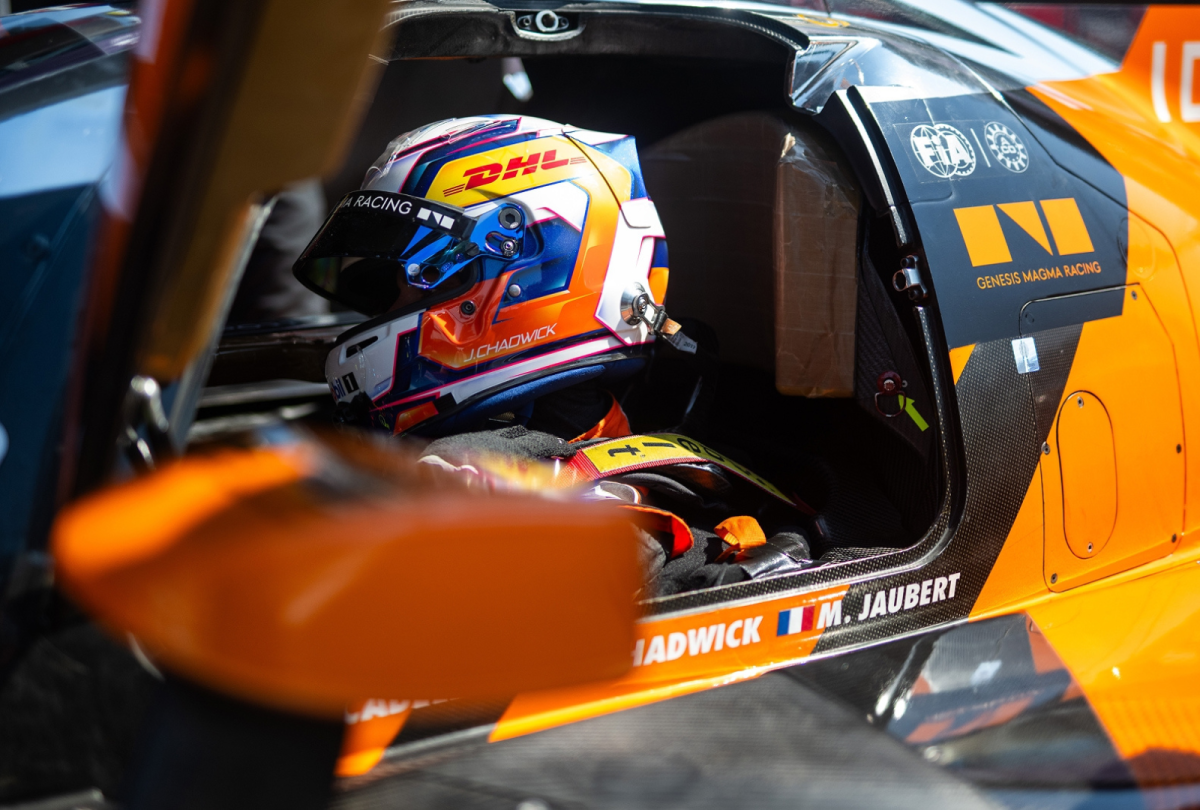Genesis: Striving for Motorsport Glory Without Compromising Quality
Genesis is enjoying robust economic success as a car company, but its motorsports division is proving to be perhaps even more successful. Company president and chief creative officer Luc Donckerwolke shared insights with Newsweek during an interview at The National AutoMuseum The Loh Collection this autumn.
### Motorsport as a Testing Ground for Future Success
As a division of Hyundai Motor Group, Genesis is leveraging the 2025 FIA World Endurance Championship (WEC) season as an extended testing phase ahead of the brand’s official entry into the series in 2026. In this competitive arena, Genesis races alongside elite automakers such as Ferrari and Porsche. Beyond WEC, the company also plans to enter the IMSA SportsCar Championship’s GTP category starting in 2027.
“He [Hyundai Motor Group executive chair and CEO Euisin Chung] really does not want to make us take any shortcuts,” Donckerwolke explained regarding the company’s motorsports directive. Donckerwolke recalled showing Chung photos and videos of the team testing in the south of France during the early days of Genesis Magma Racing. Chung’s insistence was clear: “Second place or third place is not enough. Tell me what you need to win.”
While Chung recognizes it is an accomplishment to compete against the likes of Mercedes, BMW, Audi, Porsche, and Ferrari, his aim is victory—and he is prepared to invest in achieving it. However, that investment carries conditions. “He’s not going to invest in a motorsport program to win if the product is actually being compromised,” Donckerwolke added. Maintaining the quality and competitiveness of the passenger car portfolio remains paramount.
### Training Today for Tomorrow’s Triumphs
This season, Genesis team drivers André Lotterer and Luis “Pipo” Derani have been piloting the GMR-001 Hypercar in the WEC under the banner of the Genesis Magma Racing Trajectory Program. Jamie Chadwick has also joined the endeavor and is signed to remain a program driver through 2026.
Since its inception, the Genesis Magma Racing Trajectory Program aimed for top-five finishes and podium challenges. Sporting Director Gabriele Tarquini highlighted in late October, “We have far exceeded that with three race wins from six races, and some other great individual and team performances.”
Despite the impressive early results, Donckerwolke remains pragmatic about the path ahead. He forecasts it may take “two, three years” before Genesis is a genuine contender for the WEC championship.
### The Question of Formula One
When asked about future plans involving other race series, including Formula One, Donckerwolke was clear: “We see all the other ones. But at the moment, we’ll focus on [WEC]. First, we have Kilimanjaro to climb, and then we will have Everest.”
Expanding on this mountain-climbing analogy, he emphasized a long-term strategy that prioritizes foundations over ambition. “We will not do the next steps if we’re not successful in the first step. We, at the moment, are saying that we don’t look at the other peaks and mountains to climb. We say we need to be successful climbing this one.”
### Starting From Zero in Korea
A significant challenge for Genesis is that motorsport culture in Korea is relatively new. Donckerwolke pointed out that Hyundai Motor Group has only invested in motorsports seriously within the past decade.
“Motorsport is something which is new to Korea. It is about generating another level of emotional binding with the brand. And, it is very important because it brings another level of competitiveness,” he said. He added that motorsport fosters a mentality of innovation—“learning to do things which are not forbidden, instead of doing things that are allowed.”
This mentality is a shift for Koreans, who traditionally demonstrate great respect for rules. Donckerwolke emphasized that innovation in motorsports often requires reading between the lines of regulations to gain competitive advantages that others have not pursued.
The rapid development of the Genesis motorsports program is a testament to this new mindset. After proposing the program and its costs to Hyundai’s executive chair, Donckerwolke received approval within four days. Just eleven months later, the team was testing in France with a race car and full support staff.
“This shows that you can dream and you can make those dreams a reality,” he said. As of November 2025, it marks 13 months since the program was greenlit.
### Learning from the Past
Donckerwolke brings with him lessons from his previous tenure at Volkswagen Group, infamous for the Dieselgate emissions scandal a decade ago. During that scandal, Volkswagen was found to have manipulated emissions data on 11 million vehicles worldwide.
Reflecting on that experience, Donckerwolke remarked, “I had been working for a group that destroyed itself by not being respectful of the rules and this was a big mistake. You have to be careful, but at the same time, you have to be careful not to be too careful, because otherwise you stay behind and the others innovate.”
Upon arriving in Korea ten years ago, Donckerwolke was met with a fledgling car culture scene. “I was highly frustrated. I said, ‘Okay, where’s the automotive scene? Where’s the cars and coffee? Where’s the next race?’ And people would look at me and say, ‘What are you talking about?’”
### Creating Young Korean Car Enthusiasts
Building a passionate motorsport culture in Korea is a key mission for Donckerwolke. “I need the Koreans to see more than the novelty, to be attracted to a product. I need them to be emotionally attracted to the brand. And for me, that comes to the point of creating a motorsport scene in Korea,” he explained.
He views youth engagement as critical. While many Korean children aspire to be professional golfers or baseball players, Donckerwolke hopes to inspire some to dream of race car driving careers.
“Baseball has developed to almost a national sport in Korea after golf in a very short time, 10 years or so. Let’s face it, the previous generations had a lot to fight for to rebuild the country, and now suddenly the country is opening to new universes, new ecosystems, new developments. And, part of [that newness] can be motorsport,” he said.
—
Genesis is clearly on a path of strategic, deliberate growth in motorsports — balancing ambition with careful stewardship of its broader automotive brand. As Korea’s motorsport scene evolves, Genesis aims to spearhead the country’s rise as a serious contender on the world racing stage.
https://www.newsweek.com/genesis-magma-motorsports-luc-donckerwolke-design-performance-11036509


